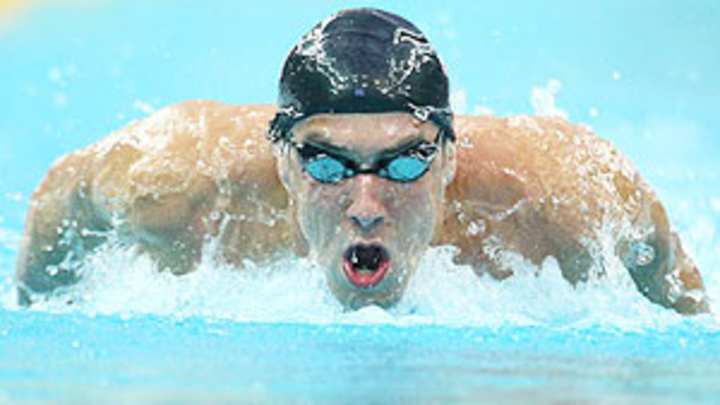The question of preeminence


In quick succession, I've been asked to lend my presumed wisdom to the following ascending questions:
1) Is Michael Phelps or Babe Ruth the greatest Baltimore athlete?
2) Is Phelps the greatest Olympian ever? And:
3) Is Phelps the greatest athlete of all time?
Sports being both competitive and argumentative, this stuff is indigenous to the subject. Who's better? Whatdya think? I'd say ESPN has made an art form out of it, but I don't want to insult art. Somehow, I don't think, say, down at the Explorer's Club, they debate regularly about who's the better explorer: Vasco da Gama or Robert Peary? Still, sports couldn't survive off the field without pitting someone against someone else.
But the questions are impossible. First, how do you even begin to rate any team athlete against an individual sport athlete? What is the basis of comparison between a shortstop and a golfer? It's hard enough judging two shortstops. None of this nonsense takes place anywhere else.
Excuse me, we're taking a poll. Who do you think is the greatest talent: Shakespeare, Rembrandt, Mozart or Caruso?
The issue of preeminence in sport is heightened because of almost all the institutions in the world, it's about the only one where it is accepted that the principals get better all the time. In sports it's an article of faith that somebody paints a better Sistine Chapel ceiling about every other weekend. Remember when, oh, about five minutes ago, Roger Federer was surely the best tennis player of all time? Now, all of a sudden he may not even be considered the best player of his generation.
And, of course, in sports where performance is measured by the clock, we can see that, intrinsically, humans are getting faster. Jamaica's Usain Bolt drove that point home by winning the 100 and 200 in world-record time. With his times from 1936, Jesse Owens wouldn't get near the Olympic starting blocks.
In sport, we bow down to the numbers and worship the immediate. But that's unfairly out of context. You don't measure Owens against runners 70 years later who have improved equipment, training, diet. You measure how he did at that time he was given to compete. It's like saying Napoleon was a lousy general because he didn't know how to deploy air power.
I've never forgotten how a good friend of mine who is a good friend of Mikhail Baryshnikov said Baryshnikov came back from the Alicia Alonzo Nacional Ballet School in Havana and told him that there were 17 or 18 young dancers who were as technically good as he had been at that age. But so what? If physical technique is always improving, genius can belong to any moment in time as much as to any other.
But I think you can say this, that what Phelps did last week may well constitute the single most sustained success any athlete ever achieved in an intense period. He's been compared to Secretariat, but that's really not apt. Because Phelps swam 17 races, he was often going up against much fresher competitors. More than Secretariat, who won at equal weights, Phelps was like a horse being handicapped, weighted down with 135 pounds on his back while everybody else swam with 120.
But I'm sorry, I'm a chicken and a spoil sport. I have no idea where he ranks in the pantheon of athletic greatness. I just know that by what he did, with as much grace and courage, day after day, Michael Phelps made the human spirit ascend, and that's as good as it gets, whenever, wherever.
